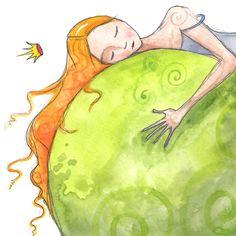Is appetite loss common in depression?

Deliah453
on
Jul 6, 2020
...read more
Depression is a feeling of sadness that does not go away for a long time and can interfere in your day to day activities. It leads to losing energy and interest. This can include Loss of Appetite despite the various stages of depression. A major depressive disorder is diagnosed when other symptoms are also faced by the individual. It must be noted that a loss of appetite may occur during other mental health conditions such as bipolar disorder and anxiety disorders. The extent of the loss of appetite faced may differ between moderate depression to severe depression.
For older adults, it can be a problem as they do not have the energy to prepare the meals and eat them despite being hungry while for youngsters, they may worry their family members by not eating. It can be quite a shocking change to see someone refusing to eat ice cream for example!
While loss of appetite is a common depression symptom, feelings of sadness or worthlessness can make some people overeat or not eat at all which isn’t very good because it happens in extremes and so people might not pay attention to the side effects. There are physical symptoms like severe weight change that can be dangerous. Overeating can be a way to deal with sadness through food which only makes you content for a short-term and is done more on regular basis while not eating at all can make the depression worse. Though this may not be apparent in the short-term, it can impact the physical health of the person.
You may try changing your regular diet and try having food at the correct times and in moderation for a healthier and happier lifestyle.

Kissmango
on
Apr 26, 2015
...read more
Maybe for some, yes. I think that a decline in activity and an increase in caloric intake/binging may also be a symptom of it.

BeautifulRoseQuartz
on
May 21, 2015
...read more
Yes, when you lose your appetite from depression it becomes very hard to get back on track because of the lack of energy and interest you see in daily life tasks.

Anonymous
on
May 22, 2015
...read more
Changes in eating can be a symptom of depression, be it a loss or gain of appetite. It is important to remember to stay healthy by eating at least three meals a day. You may want to keep a journal of when and what you eat to help monitor your eating habits.

iWalkBesideDylan
on
Jun 10, 2015
...read more
Yes it is. Both an increase and/or decrease in appetite are classic symptoms of depression. A fluctuating appetite also.

Becca0926
on
Jul 27, 2015
...read more
VERY common. Symptoms can be broad and unique to the individual, but this particular symptom is very common. If you think you are depressed, consider talking to someone whether it be a counselor, a loved one, a friend... It can be difficult to handle on your own!

PrincessPea247
on
Aug 22, 2015
...read more
Often the symptoms of depression can vary from person to person. So one person may display one symptom and another person may not. Appetite loss (or general changes in appetite) can be a symptom of depression but I would suggest that if you are concerned about it that you talk to a doctor about it.

SpaceLaces
on
Aug 31, 2015
...read more
Depression can affect your appetite in a lot of ways. You may start eating 10 times the amount you normally do or you may not eat at all. Even if you feel like you can't eat you should still try. Not eating only makes it harder to deal with.

PoliteOcean
on
Aug 31, 2015
...read more
While there are many different feelings or things that can happen with depression, not everyone is the same. The best thing to do if you are having an issue with depression is to seek the advice of a trained medical professional , including counselor or therapist.

Angel98
on
Sep 14, 2015
...read more
Yeah, it's common. In depression you could notice a loss or an increase in appetite, but it's not the only signal of depression. Others could be sleep desorders, loss of interest in things you've always liked, and low morale.
Talk to an expert therapist
Life can be challenging at times and reaching out for help can be difficult. It...
Talk to Brooke NowCommunities
